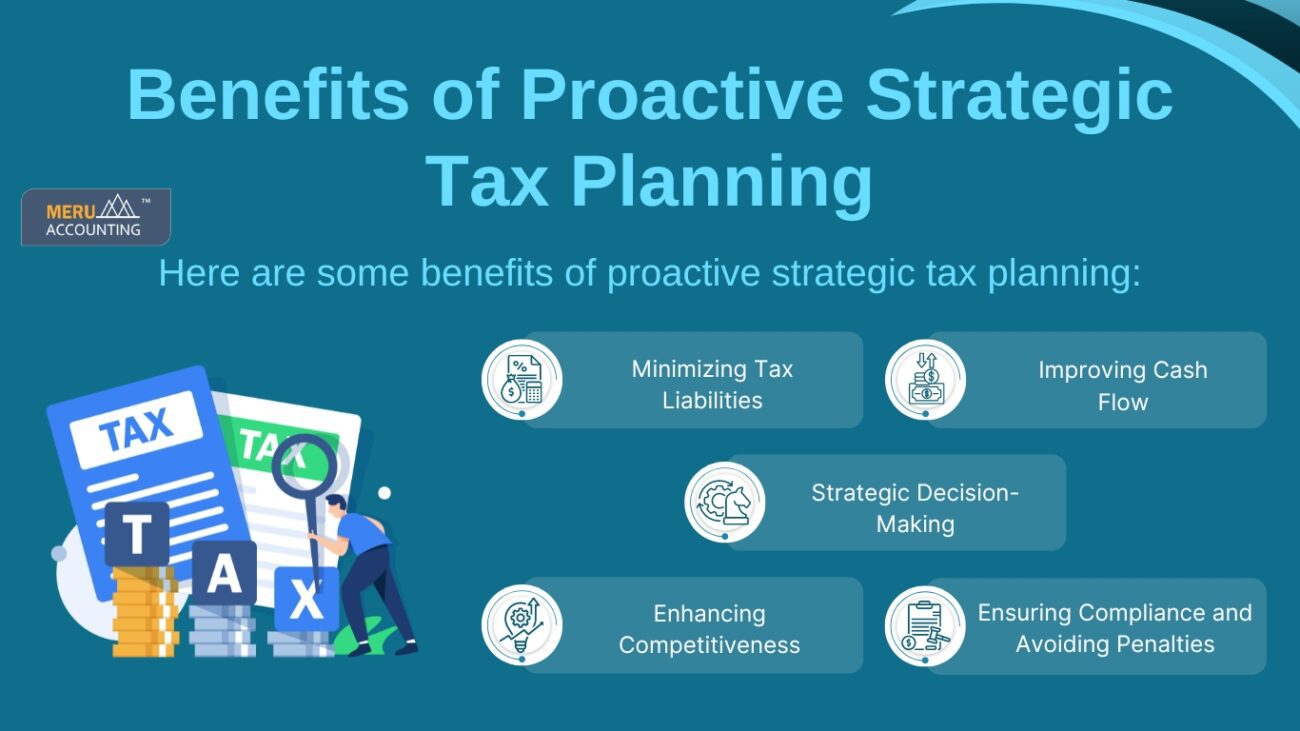
Running a small business comes with its fair share of challenges, and managing taxes is undoubtedly one of them. However, with the right approach, tax planning can become a valuable tool for small business owners to optimize their financial strategies and maximize returns. In this blog, we’ll look at the importance of tax planning for small businesses, explore the benefits it offers, and provide a structured approach to help you manage the complexities of tax management effectively.
Tax planning is not just something that needs to be done annually. It’s a proactive strategy that can significantly impact the financial health and longevity of your small business. By strategically managing your taxes throughout the year, you can minimize tax liabilities, optimize cash flow, and reinvest savings back into your business. Furthermore, effective tax planning ensures compliance with legal obligations, reducing the risk of penalties and audits.
Benefits of Strategic Tax Planning
Minimizing Tax Liabilities:
Strategic tax planning involves a detailed analysis of the tax code to identify opportunities for deductions, credits, and incentives. Small businesses can take advantage of various tax-saving measures such as accelerated depreciation, tax credits for research and development, and deductions for business expenses. By implementing these strategies, businesses can significantly lower their taxable income, thus reducing their overall tax liability and increasing their net earnings.
Improving Cash Flow:
Effective tax planning aligns a business’s tax payments with its cash flow patterns. This involves timing income and expenses to ensure that tax obligations do not create liquidity issues. For example, by deferring income to a later period or accelerating expenses into the current period, businesses can optimize their cash flow to better meet tax obligations. Additionally, planning for estimated tax payments can help businesses avoid large, unexpected tax bills, thus maintaining smoother cash flow throughout the year and ensuring that there is sufficient cash on hand for daily operations and strategic investments.
Strategic Decision-Making:
Tax considerations play a crucial role in major business decisions. By understanding the tax implications of various actions, businesses can make more informed choices. For example, when considering a major investment or expansion, understanding the potential tax benefits, such as available credits or deductions for capital investments, can influence the timing and scale of these projects. Similarly, understanding the tax consequences of different business structures (such as LLCs, S-Corps, or C-Corps) can help businesses choose the most advantageous structure for their long-term goals.
Enhancing Competitiveness:
Efficient tax planning can free up resources that can be reinvested in the business. By reducing tax expenses, businesses can allocate more funds towards innovation, such as developing new products or services, and towards employee development programs, which can enhance productivity and morale. Additionally, the savings can be used to expand into new markets, invest in marketing campaigns, or improve operational efficiency. This strategic reinvestment can help a business stay ahead of its competitors and adapt to changing market conditions more effectively.
Ensuring Compliance and Avoiding Penalties:
Tax laws and regulations are complex and constantly changing. Proactive tax planning helps businesses stay abreast of these changes and ensure compliance. By working with tax professionals to regularly review and update tax strategies, businesses can avoid common pitfalls such as underpayment of taxes, incorrect reporting, and missed filing deadlines. Compliance not only avoids penalties and fines but also protects the business from audits and legal issues that can be costly and time-consuming. Furthermore, a reputation for compliance and financial integrity can enhance a business’s standing with investors, customers, and regulatory bodies.
Conclusion
Strategic tax planning is a vital aspect of financial management for small businesses. It not only helps minimize tax liabilities and improve cash flow but also supports informed decision-making, enhances competitiveness, and ensures compliance. By investing in robust tax planning strategies, businesses can secure their financial health and position themselves for long-term success.
Summary
Benefits of Proactive Strategic Tax Planning
Here are some benefits of proactive strategic tax planning:
- Minimizing Tax Liabilities
- Improving Cash Flow
- Strategic Decision-Making
- Enhancing Competitiveness
- Ensuring Compliance and Avoiding Penalties

